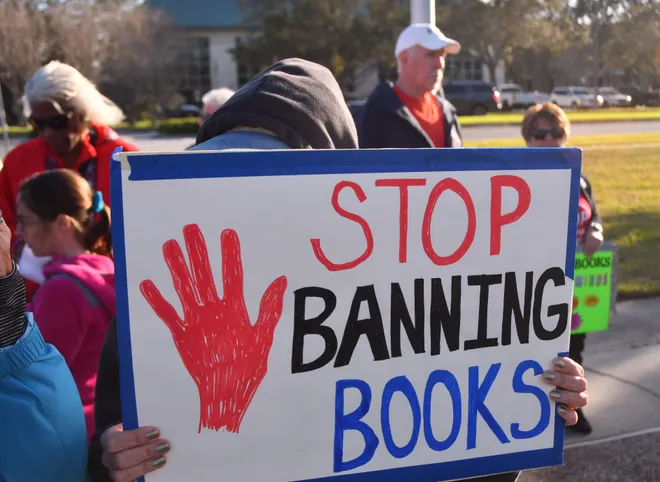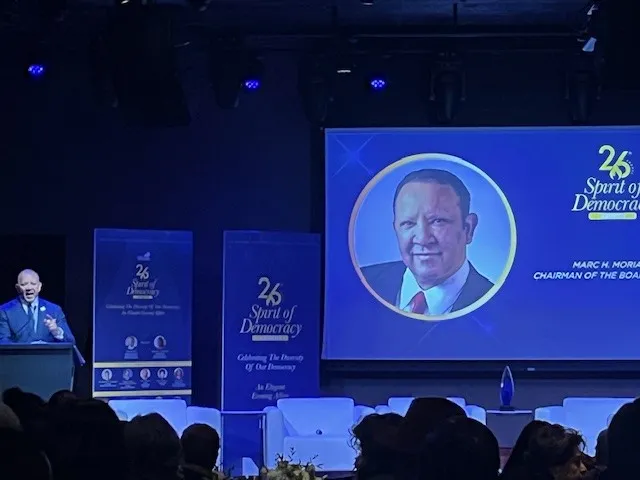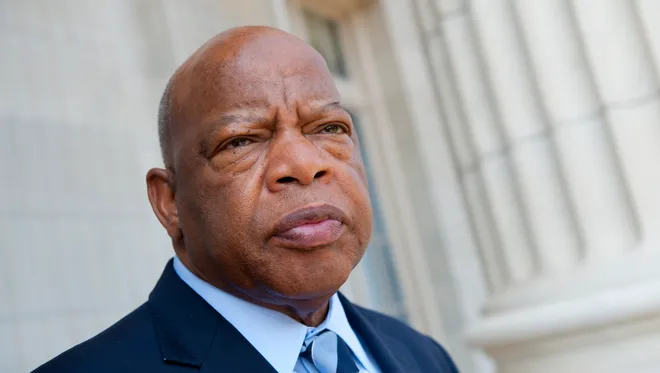'Freedom to Learn' protesters push back on book bans, restrictions on Black history
WASHINGTON, DC ‒ Congressional lawmakers, national civil rights leaders and other activists plan to rally outside the U.S. Supreme Court Friday to push back against efforts to ban some books and restrict lessons about Black history and other social issues.
The effort is part of the “Freedom to Learn” campaign, a national movement to combat those restrictions and what activists call misinformation about Black history and critical race theory. Organizers tout the rally as a day of action.
“It was designed to expand our freedom to learn to make sure that we are pushing back against the work that is trying to ban our books, trying to ban the teaching of our history,’’ said Karsonya Wise Whitehead, special projects manager for the African American Policy Forum, a think tank focused on social and racial justice issues. “It was designed to make sure that if they are teaching history ‒ history includes everybody's story.”
Protesters plan to march from the Library of Congress a couple of blocks to the front of the U.S. Supreme Court.
“We're taking our demands for the protection of the freedom to learn straight to where the people are right now making decisions about the future of this country,’’ said Wise Whitehead.

The effort comes as more states and jurisdictions, including school boards, adopt measures that restrict some teachings of Black history and ban more books, many focused on race and sexual identity.
Dozens of states, including Texas and Oklahoma, have adopted or proposed measures that limit how Black history is taught or that restrict the use of some books. Proponents argue some books are offensive and that key parts of Black history are already taught in schools.
Supporters of so-called ‘’anti-woke’’ laws said such measures protect against teaching divisive issues and blaming current generations for past injustices such as slavery. Republicans have particularly attacked critical race theory, calling it “woke indoctrination.”
Digging deeper:Is new AP African American Studies course too woke? We attended class to find out.
Critical race theory is an academic framework that argues the legacy of slavery shapes systemic racism in existence today.
Jonathan Butcher, a senior fellow at the Heritage Foundation, a conservative think tank, said school boards and policymakers should be able to determine what should be taught in schools.
“I'm not arguing that we omit important topics,” Butcher said in an earlier interview. "I think it should be done in age-appropriate ways.”
By last fall, legislation to limit the teaching of "divisive" concepts or critical race theory in public schools and/or higher education institutions had been introduced in at least 21 states, according to the National Conference of State Legislatures.

Reading further:Black history 'Underground Railroad' forms across US after increase of book bans
The African American Policy Forum will host a Critical Race Theory summer school in New York to provide a week of training on issues, including advocacy, education and political engagement.
Friday's rally will “serve as a gateway into Freedom Summer 2024 leading into the critical election season,’’ said Wise Whitehead, also a professor of communications and African American Studies at Loyola University in Maryland. Sixty years ago, during the initial Freedom Summer, hundreds of mostly college students joined local activists in Mississippi to register Black citizens to vote.
Other groups and organizations, including Black museums, have also launched efforts to counter book bans and history lesson restrictions. Some Black churches in Florida provided toolkits to help faith leaders teach Black history.
The American Library Association also launched its Unite Against Book Bans campaign. There were 1,247 attempts last year to censor library materials and services, according to the association.

Later Friday afternoon, local partners of the African American Policy Forum will host a banned book giveaway at a community center in the Bronx, New York. Organizers are also calling on faith leaders to participate in “Freedom Sundays’’ where they will urge churchgoers to register to vote and cast their ballots.
“There’s no time more important than where are right now,’’ Wise Whitehead said. “If we don't put the pressure on right now, not waiting until November, put the pressure on now to make sure that people are as well informed as possible about what is at stake at this moment ‒ which we believe is the future of democracy. That is what we're fighting for.”
Disclaimer: The copyright of this article belongs to the original author. Reposting this article is solely for the purpose of information dissemination and does not constitute any investment advice. If there is any infringement, please contact us immediately. We will make corrections or deletions as necessary. Thank you.






